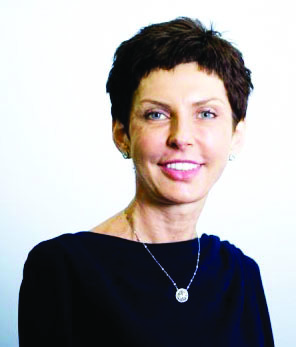A local entrepreneur’s charity handed out £11m last year – down from 2022’s £18.9m – in grants and donations over the year, its annual report has said.
Donations from Betchton businesswoman Denise Coates’ foundation – funded from profits from her company Bet365 – included £1.6m to the Liberty Academy Trust – formally known as NAS Academies Trust – to support a school expansion and building extension project at Church Lawton School.
The project will allow the school to support the development of life skills through a new bespoke quality of life curriculum, which aims to improve both current and future life opportunities for its students, who have autism.
Following previous years’ grants, a further £100,000 was given to The Land Trust as part of continued support for an on-going project at the Hassall Green Nature Reserve. The programme has focused on creating new wildlife habitats, meadow management and maintenance, and a volunteer scheme called Green Angels.
Ms Coates also donated £20,000 to help pay for a bronze statue in Congleton of suffragist Elizabeth Wolstenholme Elmy, although this was not mentioned in the report.
Ms Coates’ charity also gave Douglas Macmillan Hospice two grants, of £1.7m and £300,00, to help support the second year of integration with the Donna Louise Trust and to provide 12 months of holistic wraparound care, including counselling and emotional support services.
As well as the £11m, the trustees agreed to provide an additional £4.1m of funding in future financial periods to support a long-term medical research programme.
The foundation identifies charities locally, nationally or internationally that it wants to support – it also welcomes applications – and contact is made with charities to discuss any projects/programmes that the foundation may be able to support. Charities are then invited to present to the foundation’s trustees.
Other charities the foundation supported included:
• Mothers2mothers, a UK charity, which received £1.5m to assist with a three-year project to fully fund the implementation of a mentoring programme in the Lilongwe District of Malawi. The project aims to reach 215,000 women, children and their families by offering a comprehensive set of services to improve sexual, reproductive, maternal, and child health.
• £400,000 to Prevent Breast Cancer in Wythenshawe, to cover the cost of the refurbishment of a training suite at the Nightingale Centre and Prevent Breast Cancer research unit. The refurbished space will house a large multifunctional seminar room, accommodating 100 people.
• Bursary and scholarship schemes at Keele University, Staffordshire University and the University of Sheffield, which each received £200,000 to fund bursary schemes for undergraduates from disadvantaged backgrounds.
• A grant commitment of £2.5m was approved to support the New Vic Theatre over a five-year period to build on its current strengths and successes enabling it to be a local theatre with a national reputation. Funding from the foundation will help the New Vic Theatre to grow its capacity for artistic innovation, delivery and to grow its audience. As in previous years the New Vic Theatre received another £100,000 towards its award-winning Borderlines initiative, as part of continued support for the project. The scheme uses theatre to help people find new and positive ways to understand themselves, their communities and their responsibilities. A grant of £100,000 was also given to the New Vic Theatre to fund the New Vic Appetite programme, to support a local Christmas event in an area of Stoke-on-Trent. The programme is designed to plan and deliver activities to enable people who don’t usually access events to do so.
• Tate received a grant of £300,000 to fund the Yiadom-Boakye exhibition at Tate Britain. Tate wants to ensure that a new generation of children and young people are exposed to the artist’s work, encouraging conversations in the galleries around identity, race, community and creativity.
• A grant of £600,000 to fund the first year of a five-year ageing research project, with the funding for the remainder of the years is contingent on set targets being achieved. A further grant of £100,000 will be used on pilot projects, offering fellowships to appropriate candidates while supporting PhD students and related project grants.
• Alzheimer’s Research UK received a grant to fund a study at The University of Sheffield to develop new methods of understanding how different toxic protein types affect nerve cells in frontotemporal dementia.
• The foundation continued its support of the Catholic Agency for Overseas Development during the year with a £200,000 donation towards Cafod’s emergency relief programme in Pakistan following the flood disaster and a £100,000 donation towards Cafod’s emergency relief programme in Syria and Turkey following the earthquakes.
The foundation’s total income for the year was interest and investment returns of £7.9m (2022: £5.1m) and charitable donations of £100m.
After allowing for governance costs of £100,000, investment management costs of £1.4m and investment losses of £33.3m, this resulted in net income for the period of £62.2m, which when added to the funds brought forward left £730.2m (2022: £668m) in the foundation’s coffers, the money being ethically invested.
At the end of the financial year there was £5.2m of outstanding unconditional commitments in relation to nine donations promised but not made as at the balance sheet date.
This year, the trustees intend to make a grant to provide five-year long term funding of medical research including pilot projects, fellowships, and PhD students (£800,000); a grant to support a four-year community outreach programme in Stoke-on-Trent and Staffordshire (£500,000) and a grant to provide five-year long term funding of medical research (£4.7m).
• The BBC this week dubbed Ms Coates “Britain’s highest paid boss”. It followed the release of Bet365’s latest accounts for the year to March 2023. It reported that Ms Coates was paid around £221m during its last financial year, £7m higher than the previous year. The BBC reported that Ms Coates’s pay increase meant that her total salary over the past four years had surpassed £1bn. She is unusual in taking the majority of her income as salary rather than dividends and so was the highest taxpayer in Britain from 2019-2022.





